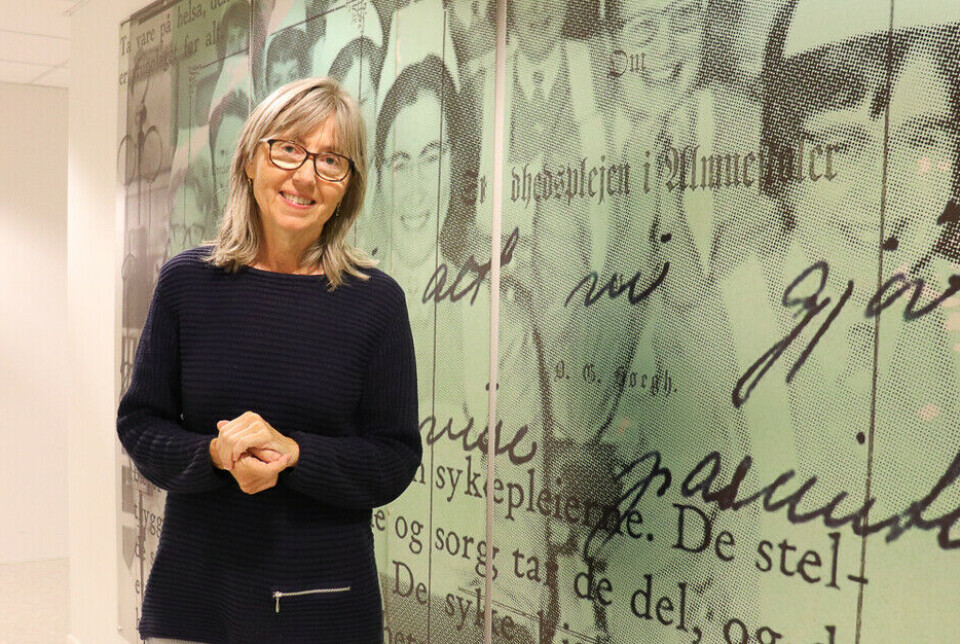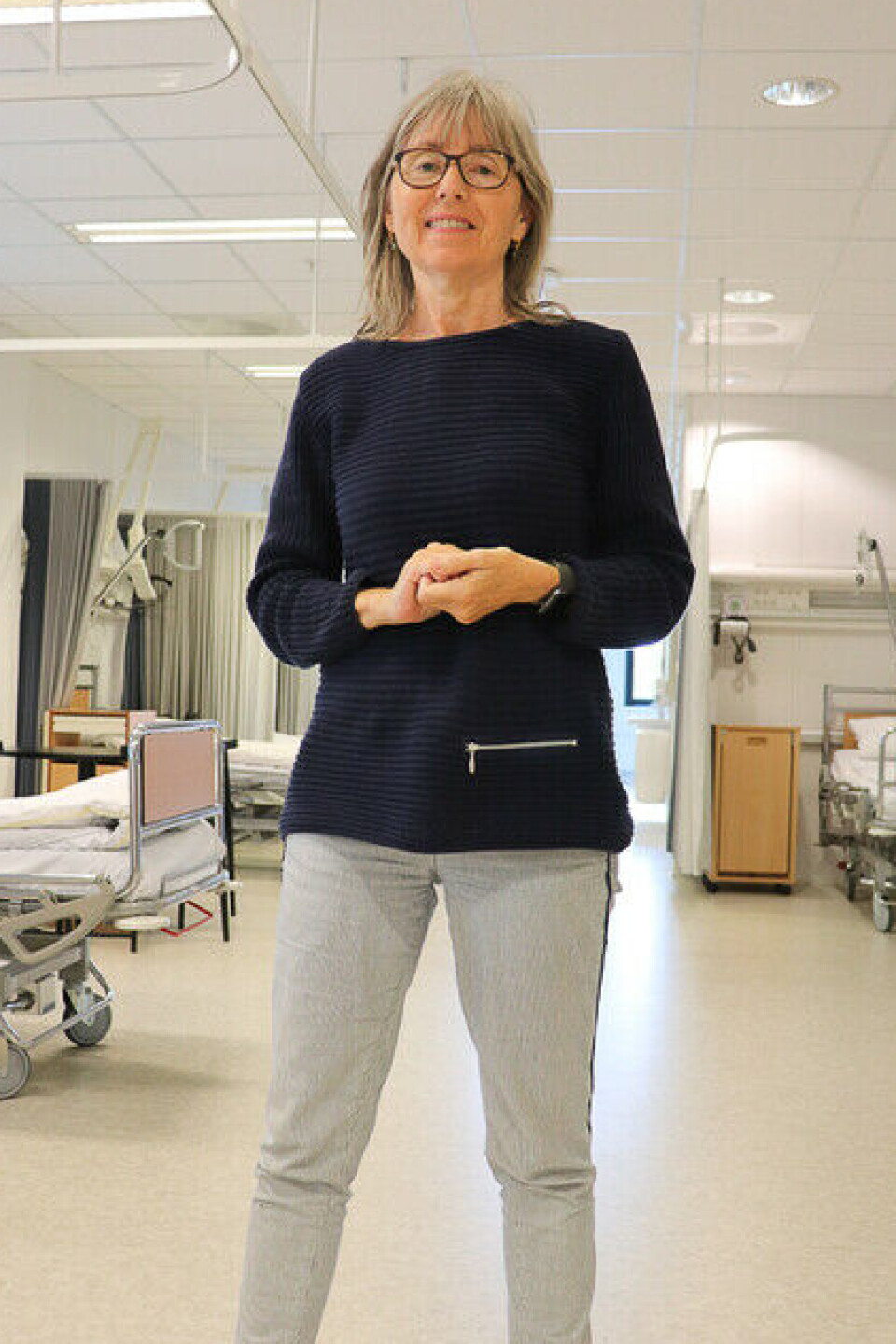THIS CONTENT IS BROUGHT TO YOU BY THE University of Agder - read more

Norwegian municipalities lack highly qualified nurse
This is revealed in a new study on the quality at municipal institutions.
“There's a critical shortage of nurses with a master's degree or additional training in emergency nursing, geriatrics, and mental health within the municipal in-patient acute care services in this country,” Torunn Kitty Vatnøy says.
She is a researcher and associate professor at the University of Agder (UiA) and is affiliated with UiA's Centre for Care Research.
In her research, she has analysed the competence levels in the municipal 24-hour acute care service across the country and identified the need for higher nursing competence.
“Nurses require expertise in clinical assessments and advanced nursing competence to make sound clinical decisions in acute situations,” Vatnøy says.

The researcher has, among other things, interviewed eight nurses and two doctors. She also distributed a questionnaire to the municipalities, receiving a 92 per cent response rate.
New needs following healthcare reform
The need for highly competent nursing staff in municipalities has increased since the introduction of the Coordination Reform in 2012. The reform aimed to strengthen cooperation between the municipal health service and the specialist health service, namely municipalities and hospitals.
One of the primary initiatives of the reform was the establishment of 24-hour municipal in-patient acute care services. From 2016, all municipalities have been required to provide round-the-clock care and observation for patients with acute needs.
“Municipal acute care beds are intended to alleviate the burden on hospitals, offering healthcare for individuals who are not sick enough to be in a hospital but too ill to be treated at home. While the service offers many benefits, it demands a high level of competence,” Vatnøy says.
Unspecified competence requirements
It is widely agreed that older and vulnerable patients require highly qualified healthcare personnel. However, the nursing competence requirements at the acute care services are inadequately defined by the health authorities.
“In the Coordination Reform, it is specified that doctors and nurses should be present at the acute care units, but there is nothing mentioned about the need for advanced nursing competence among nurses,” Vatnøy says.
She explains that advanced nursing skills at the master's level encompass knowledge and the ability to take responsibility, along with the capability to handle uncertain events and complex disease patterns.
Needing urgent medical attention
Vatnøy refers to an example where an elderly patient requests a warmer duvet when they actually require immediate medical treatment.
The patient feels cold due to a rapidly rising fever, and their condition could quickly escalate into a life-threatening infection (sepsis) if the nurse fails to interpret the situation correctly.

“Sepsis progresses rapidly and is life-threatening. It is imperative that a doctor is contacted and critical treatment is promptly initiated in such situations,” she says.
According to Vatnøy, having nurses with advanced education, preferably at the master's level, is a great advantage in accurately assessing such situations.
Municipalities do not prioritise education
“The lack of specialist nurses is a major challenge for the quality of services in the municipalities,” Vatnøy says.
There are educational opportunities for nurses who want to enhance their skills and knowledge, but many of these programmes have vacant spots.
“It's not surprising. The target group is working nurses; they have jobs and income. One cannot expect them to quit their jobs and give up their income to pursue further education. I find it more surprising that these programmes have applicants at all,” Vatnøy says.
At the same time, she points to a tendency among municipalities to prioritise staffing over further education due to the general shortage of nurses.
“However, municipalities must recognise the need for higher competence and facilitate opportunities for employees to pursue further education,” she says.
Underutilised capacity
Municipalities in this country are only utilising 41 per cent of the capacity in their acute care units. The likely reason is that doctors prefer to send patients to hospitals rather than the municipal acute care units.
“Doctors lack confidence that the municipal emergency 24-hour centres have sufficient competence to manage patients, and this is very worrying. It also underscores what my study shows about insufficient competence in the municipal health services,” Vatnøy concludes.
Reference:
Vatnøy, T. Nursing Competence in Norwegian Municipal in-patient Acute Care. Professional Accountability, Environment, and Leadership, Doctoral dissertation, University of Agder, 2022.

This content is paid for and presented by the University of Agder
This content is created by the University of Agder's communication staff, who use this platform to communicate science and share results from research with the public. The University of Agder is one of more than 80 owners of ScienceNorway.no. Read more here.
More content from the University of Agder:
-
Fear being rejected: Half pay for gender-affirming surgery themselves
-
Study: "Young people take Paracetamol and Ibuprofen for anxiety, depression, and physical pain"
-
Research paved the way for better maths courses for multicultural student teachers
-
The law protects the students. What about the teachers?
-
This researcher has helped more economics students pass their maths exams
-
There are many cases of fathers and sons both reaching elite level in football. Why is that?




































